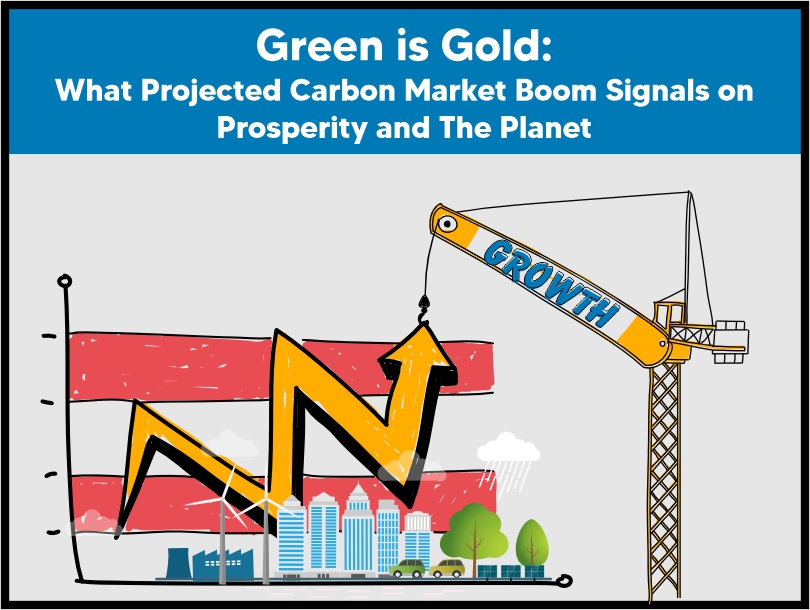Comprehending Carbon Credits
Progress as a community ensures the survival of a race, but as a community, country and even as a unified world, on the path to fast-paced development, we often lose sight of the traces we leave behind. In the race to make the world a technologically advanced and comfortable place for its people, we have been ignoring the price that the nature and environment make: reducing forest coverage, loss of flora and fauna, changing climate, rapidly rising sea level, constantly depleting natural resources are only but a few examples of how human-race has been altering the nature in the years gone.
There is no denying the fact that global warming is one of the major threats to humankind and major efforts on a global level are needed to lessen its negative impact. But our heavy dependence on fossil fuels, that are mainly responsible for global warming, can’t be reduced overnight. This dependence contributes to the increased carbon footprints which again is a reason for concern in the world already impacted by global warming. Thankfully, efforts across the globe are being made towards finding solutions to combat this threat. Fortunately for us, the devil known as carbon dioxide is now making itself known as a product that can be used to make money. This is the business of the new, environmentally aware world known as Carbon Trading.
Carbon Trading
Carbon trading is an exchange of carbon credits between nations that is designed to lessen the carbon dioxide emissions. It is an innovative way that takes advantage of collaboration among countries that have higher carbon dioxide emissions than the set limit with those that emit less carbon. Fortunately for developing countries like India, Brazil, China and others, carbon trading gives everyone a trading opportunity. This is achieved by selling of the carbon credits earned by reducing carbon emissions and making money along with helping the environment become safe.
Carbon Credits: Earn and Sell
As a developing country, we are part of Kyoto Protocol developed under the UNFCCC- the United Nation Framework Convention on Climate change, but we don’t have binding targets on the amount of carbon released that many developed countries have. Thus, any attempt at reducing carbon and producing a positive output earns the businesses that do so “Carbon Credits”. These carbon credits can be transferred to the buyer of carbon credits which generally include companies in rich countries in Europe, Germany, North America and UK which are facing issues in replacing their polluting units in keeping their carbon emissions within the limits set by Kyoto protocol.
How to Trade
The carbon credits are recognized as actual, transferrable credits. Interestingly, according to an amendment made in Budget 2018, the tax on income from carbon credits has been reduced from 30% to 10%, thus making it more profitable. This puts carbon trading on the list of businesses that will likely emerge as one of the most profitable businesses in the modern world. The world bank reviewed
that despite various economic and non-economic limitations, carbon trading in India is rapidly growing and emerging strongly.
Upping the Advantage
CDM- Clean Development Mechanism aims at investing in emission reducing projects in developing countries and allows our country to benefit from selling carbon credits to industrialized countries. India
and China have surplus credits to offer countries that have a deficit. Thus, emitters in these developing countries that can successfully reduce their emissions at a cheap rate can, in turn, sell their surplus allowances to emitters with higher reduction costs. Waste disposal units, plantation companies, chemical plants, municipal corporations and even small investors can sell the carbon credits and make money.
Conclusion
Now is the time to realize our responsibility towards our planet and its environment. Luckily for us, it comes with a business opportunity. The carbon credits trading business as we know occupies the fastest growing financial market in the world economy presently. As a developing country, India has a large potential for reducing carbon emissions in various businesses and walks of life that place it at an advantage above other countries, and carbon trading directly transfers that advantage to us that translates in a highly lucrative business opportunity.











